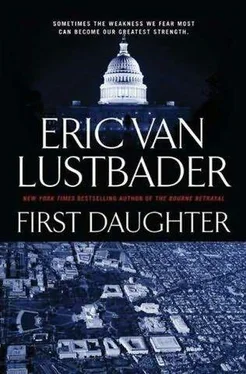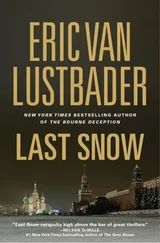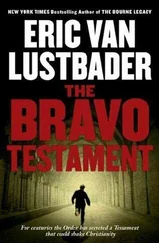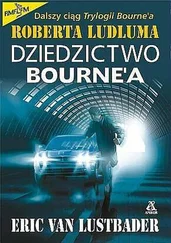There were reasons Alli liked Emma. Emma came from the wrong side of the tracks, from a family that had to take on debt to send her to Langley Fields. She was smart, funny, and, best of all, utterly without pretensions. Born into a family with, it seemed to her, nothing but pretensions, Alli lived in fear that this trait lay buried in her DNA, sealing her fate, would at any moment turn itself on like a geyser, humiliate her to tears. And when, at Emma's insistence, she read Hunter S. Thompson's Fear and Loathing in Las Vegas , she understood that Emma was a kind of talisman, her subversive bent a magic charm that could immunize Alli against her screwed-up hereditary disease.
Plus there was an edge, a toughness to Emma, the hardy scuff picked up in the street. She was fearless. Privilege, Alli had reason to understand, made you soft, vulnerable, fearful, as if your body had been turned inside out, pink and pulsing. It was a hateful disfigurement, one she felt powerless to reverse until Emma came into her life.
Then everything changed.
IT'S A total blackout," Chief Bennett said, "as if the Dark Car never crashed."
"What about the gunshots on Kirby Road?" Jack asked.
Bennett shook his head. "Only a small item about a milk truck that caught fire."
The two friends sat in Tysons Corner in a small coffee shop with a striped awning out front and bistro tables inside. From where Jack sat, he had a good view through the front window of the leafy side street and the occasional passing car. As soon as he had dropped a thoroughly rattled Armitage off at his office, he called Bennett. Then he ran every red light to get here. The pursuit by the Dark Car, the shooting, and its aftermath had shaken him more than he cared to admit. He felt as if he had entered a new and far more dangerous arena.
Bennett turned his coffee cup around and around as if something about its symmetry made him uncomfortable. "Someone very high up in the government food chain is spinning the news at a furious clip," Bennett said.
"According to your information, that would be the president, the Secretaries of Defense and Homeland Security, or the National Security Advisor. Why in the world would any one of them want me dead?"
Bennett watched a middle-aged man enter, then slide into a booth where a young woman waited for him. She smiled, took his hand in hers. Bennett lost interest in them.
"I've been in this business thirty years," he said. "I've never run up against a brick wall like this. Jack, I've made a career of getting around the brick walls of various government agencies, but this one's different. None of my contacts can help me-or they won't."
"Too scared?"
Bennett nodded. "I'm sorry, Jack. I should have followed you, should have protected you."
"It's not your job."
"I agreed to have you seconded to Hugh Garner's band of merry men." He gave Jack a lopsided grin. "I knew more or less I was throwing you to the dogs."
Jack nodded. "You warned me. But it was Edward Carson who asked for me. I don't see how you could've refused."
There was an unhappy pause while the waitress refilled their cups. Bennett's eyes strayed out through the side window, across the avenue. Following his gaze, Jack saw the bottles of wine, whiskey, designer vodkas, aged rums artfully displayed in the window of the shop across the street.
"I suppose it doesn't get any easier."
Bennett shook his head. "It's like a siren's call."
"As long as you're securely lashed to the mast like Ulysses."
Bennett's gaze swung back to him. "I lost my wife because I was drunk all the time; I'm not about to go off the wagon now."
"I'm happy to hear it."
Bennett poured half-and-half into his cup, along with lots of sugar. That was his treat. "Speaking of wives, you ought to get back with Sharon."
"I was wondering why you insisted she come down to the hospital."
"To be honest, Jack, she was glad I asked. I think she wanted to come."
Jack sipped his coffee, said nothing.
"I know you're still pissed about her and Jeff."
"You could say that. He was my best friend."
"Jack, what he did-he was never your friend."
Jack's eyes slid away, staring at nothing.
"Sharon did it to get back at you, because she blamed you for Emma's death. She made a mistake." Bennett's voice was low, urgent. "Jack, don't fuck things up with this girl. She loves you." He gave a little laugh. "Shit, you're not the hard-hearted bastard you think you are."
AS JACK turned onto Kansas Avenue NE, he saw Nina waiting for him. He'd called her while walking out of the coffee shop in Tysons Corner. She leaned against her black Ford, smoking one of her clove cigarettes. She looked unaccountably fetching in boots with sensible heels, dark slacks, and a navy peacoat buttoned up to the chin. She seemed oblivious of the sleet.
The Hi-Line had been transformed into the Black Abyssinian Cultural Center. The electronics shop behind which Andre and his crew had beaten the crap out of him was now a ninety-nine-cent store. Otherwise Kansas Avenue looked much the same. It was still filthy and decrepit, no place for the Renaissance Mission Congress. But the old clapboard building, still peeling, still deeply tarnished with mildew, did seem peculiarly appropriate for the First American Secular Revivalists.
Jack got out of the car and led Nina into the building that held so many memories for him.
Where there had once been pews and pulpits was now a large work space divided into cubicles by cheap, movable half walls, each equipped with a desk, cordless phone, computer terminal, and the like. A soft murmur of voices filled the area where once a choir had opened up their throats and their hearts to God.
The cubicles were filled by an eclectic army of men and women whose ages Jack judged to be from their early twenties to their late sixties. They all looked extraordinarily busy. Only a young girl glanced up as they went past.
Armitage-and presumably Peter Link-occupied a separate office, what had once been Reverend Myron Taske's rectory. Jack, in the center of the room, looked around. The huge armoire was still against one wall, Taske's battle-scarred desk was opposite, but everything else was different-modern, sleek, gleaming. Maybe it was the new furniture that made the room look so small, Jack thought. Or perhaps it was his memory playing tricks on him. Either way, as in the Langley Fields buildings, Jack felt a dislocation-as if he were both here and not here. He wondered if that was how Emma felt when she appeared in the backseat of his car.
By this time, Armitage was behind his desk. "You said you wanted a list of members who had defected over the last eighteen months."
Jack cleared his throat. "That's right."
Armitage nodded. "I can do that."
His fingertips flew over his computer keyboard, typing in the algorithm that would decrypt the FASR database. A moment later, he was scrolling down a list, cutting and pasting into a new document. He pressed a key, and the printer began to hum. Then it spit out two sheets of paper. Armitage leaned over, pulled them out of the hopper, handed them to Jack.
Jack was aware of Nina very close beside him, leaning in to read the list so easily, so effortlessly, he felt a stab of envy. For him it was a struggle of the first order. He concentrated in the way Reverend Taske had taught him, remembering the three-dimensional letters Taske had made for him, so Jack could feel them, understand their individual nature in order to recognize them in two dimensions, make sense of their sequences. The letters stopped swimming away from him, began to gather like fish around a coral reef. Jack began to read the names, slowly but accurately.
"See anyone you know?" Armitage asked.
Читать дальше












